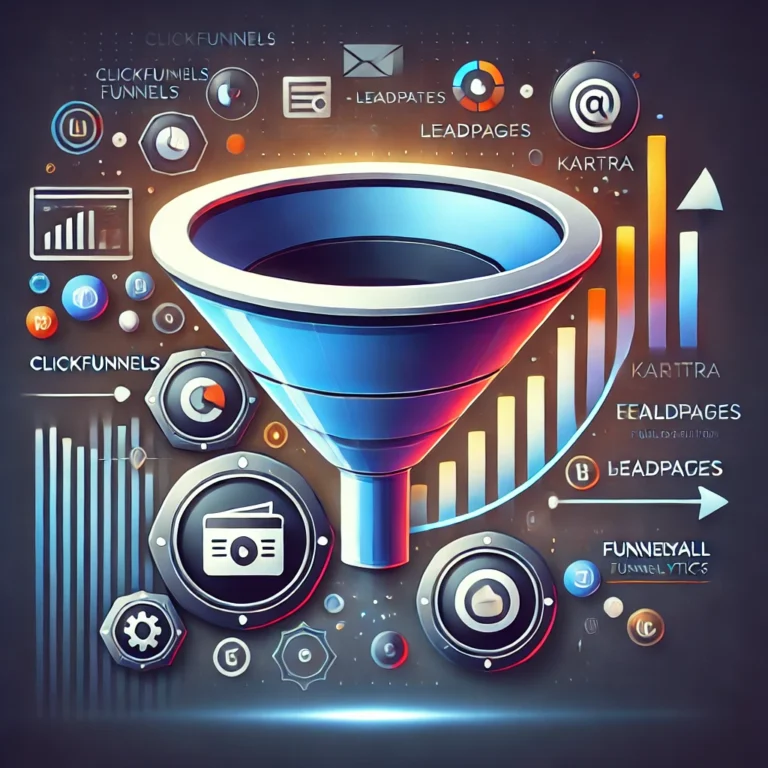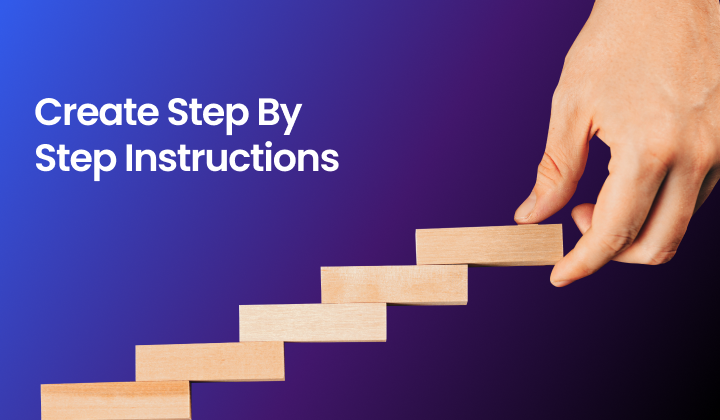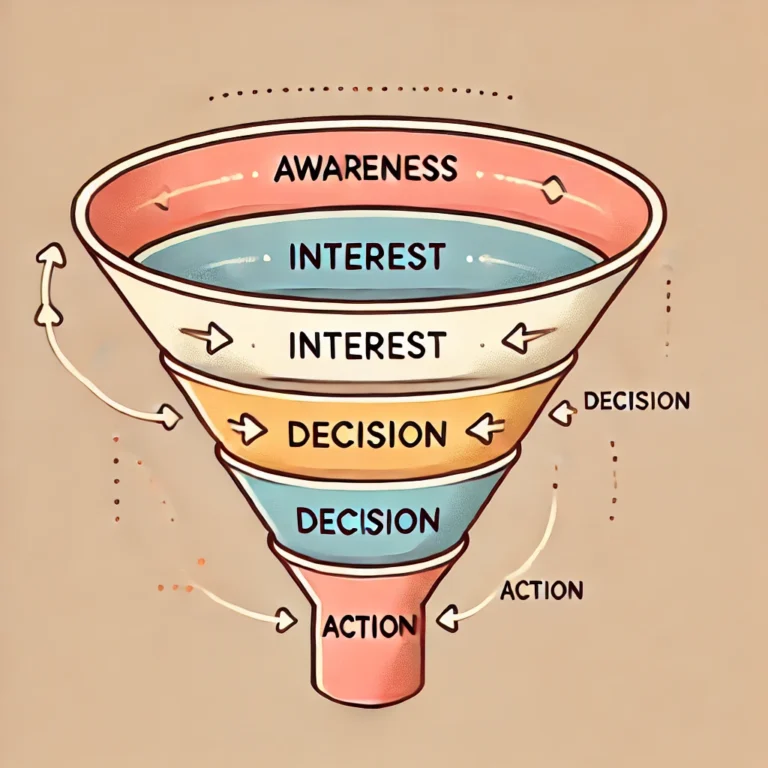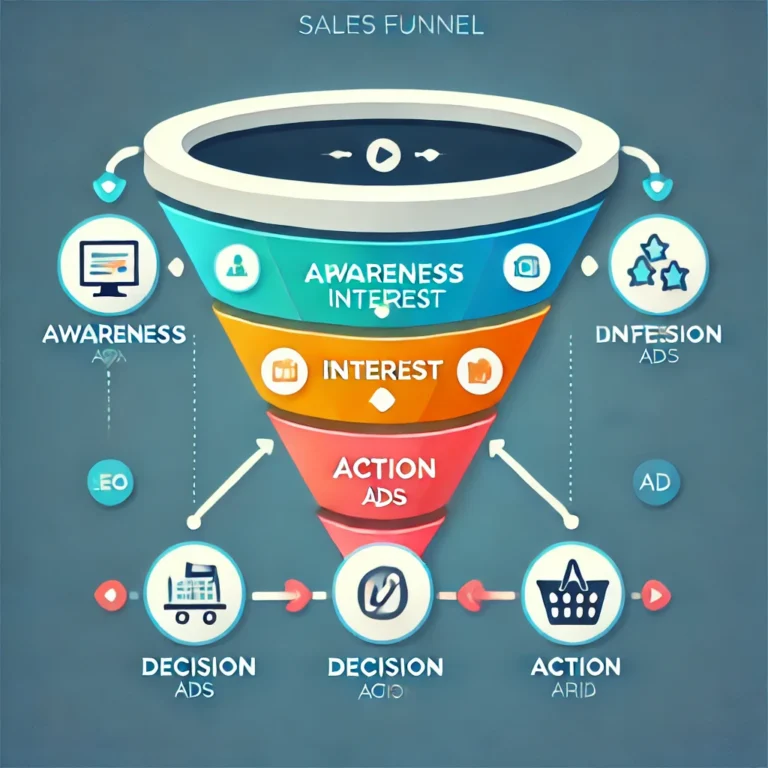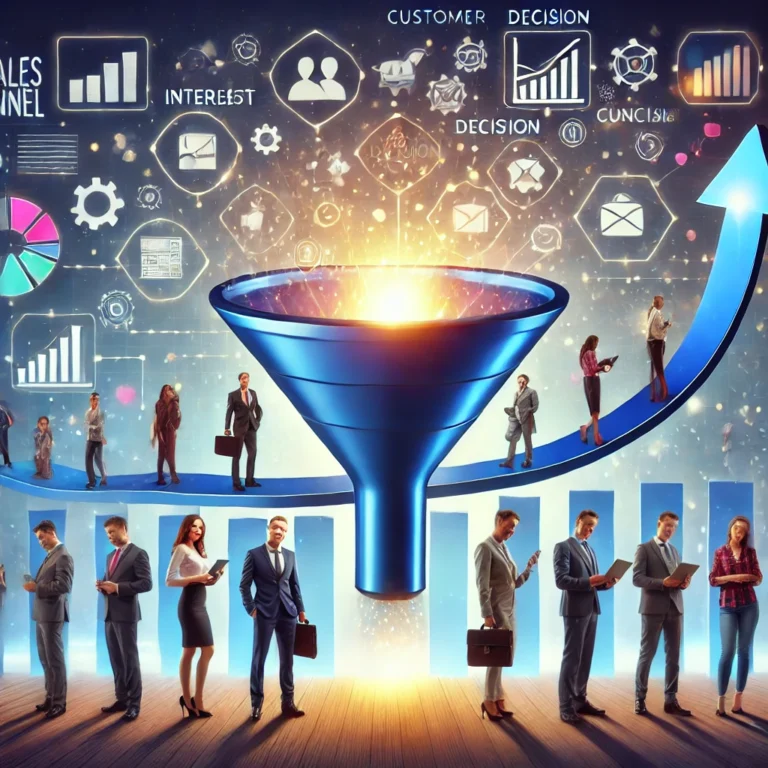Top 10 Benefits of Using a Sales Funnel: A Comprehensive Guide
Top 10 Benefits of Using a Sales Funnel: A Comprehensive Guide
In today’s competitive market, converting leads into loyal customers is more challenging than ever. Enter the sales funnel — a proven strategy that businesses of all sizes can leverage to streamline their sales process, improve conversion rates, and boost overall profitability. Whether you’re a solopreneur or part of a large enterprise, understanding and utilizing a well-designed sales funnel is crucial to your success.
But what exactly is a sales funnel, and why should businesses care? Let’s take a deep dive into the topic, exploring 10 key benefits of using a sales funnel, with real-world applications and insights.
What is a Sales Funnel?
A sales funnel is a marketing concept that illustrates the journey a customer takes from the moment they become aware of your product or service to the final purchase. The funnel metaphor is used because, typically, you start with a large number of leads at the top, but as they move through various stages (like awareness, interest, and decision-making), the number of potential customers narrows down until they ultimately make a purchase.
The stages of a sales funnel generally include:
- Awareness: Prospective customers first learn about your product or service.
- Interest: They show interest by engaging with your content, asking questions, or signing up for emails.
- Consideration: At this stage, they evaluate your offer alongside competitors and assess whether it’s a good fit.
- Action: The final stage where they make the purchase or take the desired action.
Now that we have a basic understanding of the sales funnel, let’s explore the top 10 benefits of using it.
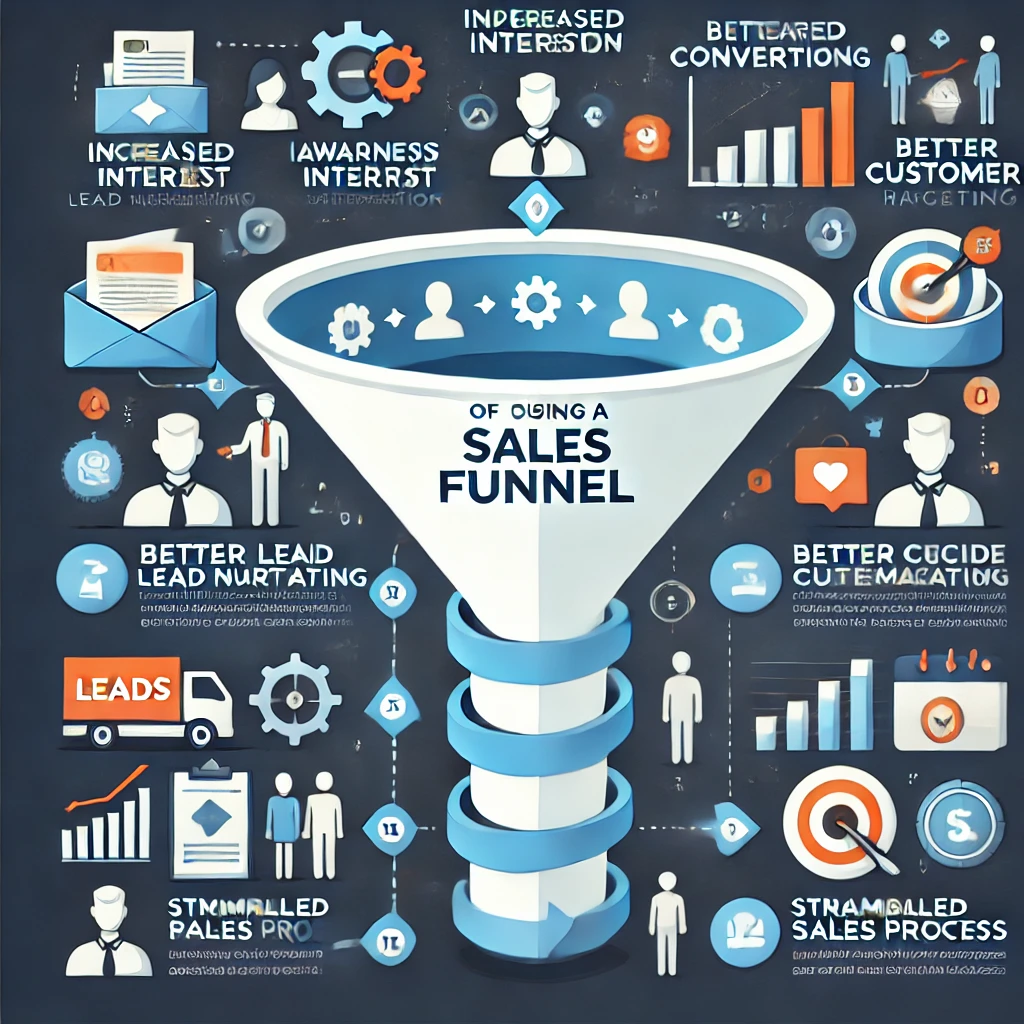
1. Streamlined Customer Journey
One of the most significant advantages of using a sales funnel is the ability to streamline your customer’s journey. Without a structured funnel, leads might be unsure of the next steps to take, causing confusion and dropping off. A well-designed funnel guides your potential customers through a sequence of steps, making it clear what they need to do at each stage, leading them towards a conversion.
Why is this important? The simpler and more intuitive the process, the higher the chance your leads will continue down the path to conversion.
2. Increased Conversion Rates
Sales funnels are designed with one primary goal in mind: to convert leads into paying customers. By nurturing prospects at every stage of their journey, a sales funnel helps increase the likelihood of conversion. Personalized and targeted content, offers, and calls-to-action (CTAs) ensure you’re speaking directly to your leads’ needs, enhancing the probability they’ll make a purchase.
How does this work in practice? A well-executed funnel uses automation to send the right message at the right time, effectively guiding leads through their decision-making process.
3. Improved Lead Qualification
Sales funnels help you identify and qualify leads more efficiently. Instead of trying to convert everyone who comes into contact with your business, you can focus on those who show genuine interest or are more likely to buy. By collecting data and analyzing behavior at each stage, you can determine which leads are worth pursuing and which ones need more nurturing.
Question: Does every lead deserve the same level of attention? No, not every lead is the same. Some may require more time and nurturing, while others may already be ready to make a purchase.
4. Better Customer Segmentation
A sales funnel allows you to segment your leads based on their behavior, interests, and demographics. As prospects move through the funnel, you can categorize them into different segments, allowing for highly targeted follow-ups and offers. This segmentation leads to higher engagement rates, as your messages are more relevant to each individual.
How can you benefit from segmentation? By providing tailored offers and messages, you increase the chances of creating a stronger connection with each lead, ultimately boosting your conversion rates.
5. Increased Revenue
By providing prospects with the right offers at the right time, sales funnels help maximize revenue. With automated upsells, cross-sells, and targeted discounts at various funnel stages, you have numerous opportunities to boost the average order value (AOV) and overall sales.
How does a funnel directly impact revenue? Sales funnels aren’t just about closing individual deals — they create a structured environment where you can continually optimize for higher revenue.
6. Efficient Use of Resources
Without a clear funnel, your marketing and sales efforts may be disjointed or ineffective. A sales funnel helps streamline your efforts, ensuring that resources (like time, money, and manpower) are invested in the most promising leads. Instead of spending resources on cold leads, you can focus your energy on those who are most likely to convert.
How does this save resources? By automating repetitive tasks, such as email follow-ups or lead scoring, you free up time for your sales team to focus on high-value activities.
7. Automation and Scalability
Sales funnels allow you to automate a significant portion of the sales process. From lead nurturing emails to automated reminders, a well-designed funnel can handle much of the work without requiring constant input from your team. This makes scaling your business more manageable, as you can continue to generate and convert leads without needing to hire additional staff.
What does this mean for your business? With automated workflows, your business can handle more leads and customers without the need to increase operational costs significantly.
8. Enhanced Customer Relationships
A well-crafted sales funnel helps build trust and rapport with potential customers. By delivering personalized content and offers that address their pain points, you’re showing your leads that you understand their needs. This approach leads to stronger relationships and higher customer loyalty, which is crucial for long-term success.
Why are relationships so important in business? Trust is the foundation of any business relationship. When customers feel that you’re genuinely helping them, they’re more likely to become repeat customers and brand advocates.
9. Better Analytics and Insights
Sales funnels provide valuable data and insights into your leads’ behavior. You can track where leads drop off, which pages or offers perform best, and where your conversion bottlenecks lie. This data helps you optimize your marketing and sales efforts over time, leading to continual improvements in your processes.
How do these insights help? By analyzing the data, you can adjust your funnel to remove inefficiencies, improve conversion rates, and ensure you’re always offering the most relevant content to your audience.
10. Optimized Marketing Campaigns
By understanding how leads move through your sales funnel, you can design more effective marketing campaigns. Whether you’re using content marketing, paid ads, or social media, knowing where your leads are in the funnel enables you to create more targeted campaigns that align with their needs.
What’s the benefit of tailored marketing campaigns? Targeted campaigns reduce wasted ad spend, increase engagement, and improve ROI by ensuring you’re reaching the right audience at the right stage of the funnel.
Conclusion
Sales funnels are a powerful tool that can significantly improve your business’s efficiency, increase conversion rates, and boost revenue. By streamlining the customer journey, automating key processes, and providing valuable insights into your leads’ behavior, sales funnels create a more structured and predictable sales process.
Whether you’re just starting or looking to optimize your existing funnel, the benefits are clear: enhanced lead qualification, higher revenue, and stronger customer relationships. If you haven’t already implemented a sales funnel in your business, now’s the time to start.! check out our 5 Best Sales Funnel Software’s: A Guide to Streamlining Your Sales Process
